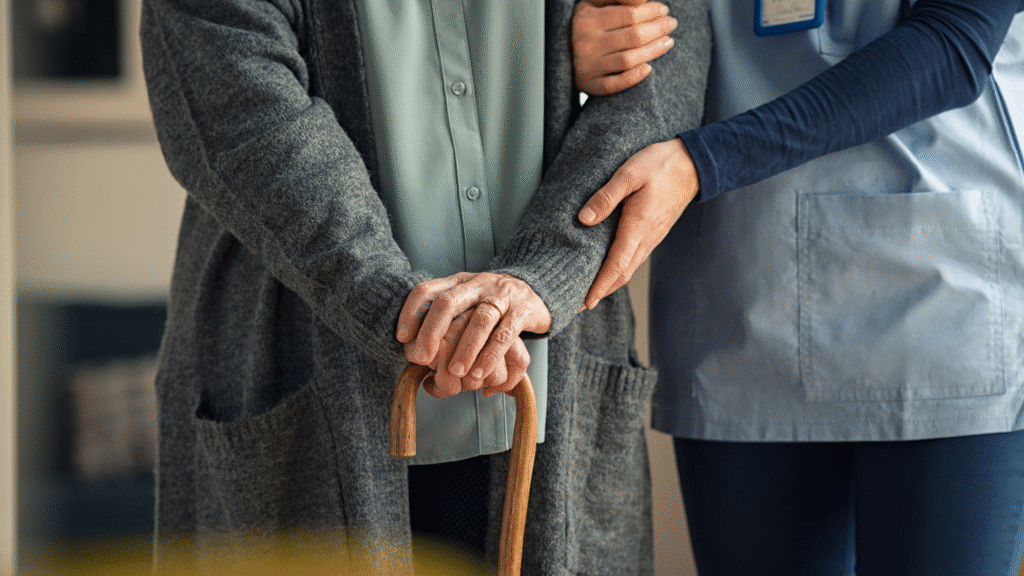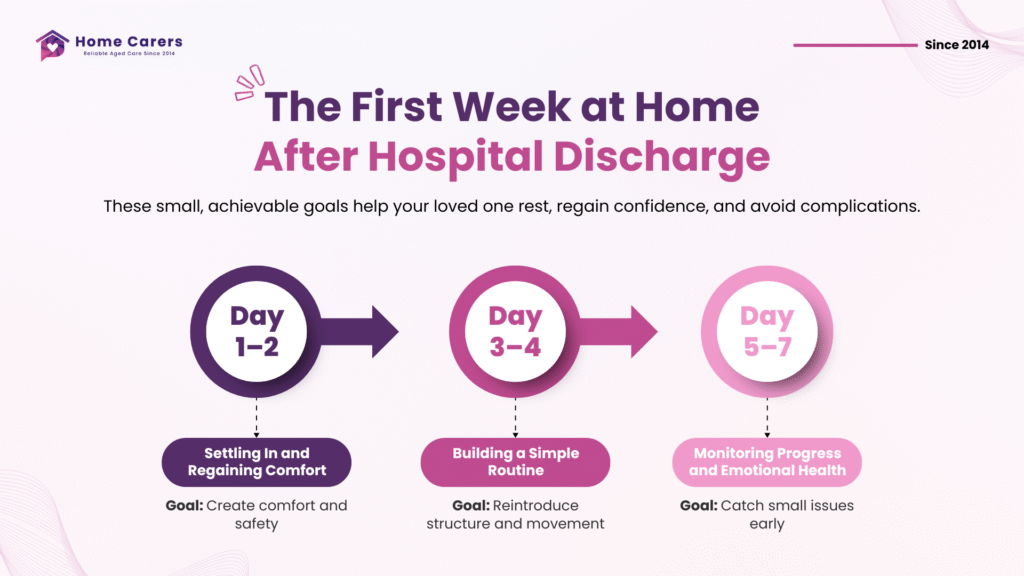..
The first week at home after leaving hospital can be both hopeful and challenging. While it’s a relief to have your loved one back in familiar surroundings, it’s also a period of adjustment — for their body, mind, and routine.
In New Zealand, many older adults are discharged as soon as they’re medically stable, which means much of the healing happens at home. Understanding what to expect during this time helps families provide the right balance of rest, support, and independence — and ensures recovery stays on track.
Day 1–2: Settling In and Regaining Comfort
Coming home can be disorienting after days or weeks in a hospital environment. The goal during the first two days is to settle in gently:
- Make sure the home is warm, clean, and well-lit before arrival.
- Help your loved one change into comfortable clothing and rest in a familiar space.
- Review the discharge summary and medications together to understand timing and dosages.
- Keep the environment calm — recovery begins with comfort and reassurance.
If you’re unsure about handling medication or follow-up instructions, arranging Hospital to Home support ensures these first few days are safe and structured.
Day 3–4: Building a Simple Routine
Once initial fatigue eases, gentle structure helps recovery feel purposeful.
- Encourage small, frequent meals and plenty of fluids.
- Schedule rest periods between activities to prevent exhaustion.
- Begin light movement or walking as advised by the doctor.
- Check for any side effects from new medication, such as dizziness or confusion.
A dedicated Home Carers professional can help establish these healthy daily routines — balancing rest with small moments of activity to rebuild confidence.
Day 5–7: Monitoring Progress and Emotional Health
By the end of the first week, recovery progress becomes clearer. Some older adults regain energy quickly, while others may still feel weak, anxious, or disoriented.
Families can support this phase by:
- Observing any new symptoms, such as pain, shortness of breath, or swelling.
- Ensuring medication routines are consistent.
- Encouraging light conversation and companionship to reduce isolation.
- Checking that follow-up appointments are confirmed.
Emotional well-being matters just as much as physical healing. Many older adults feel vulnerable or dependent after hospital stays. Having a familiar carer visit for company and reassurance can make a world of difference.
Common Feelings and Challenges
It’s normal for recovery to feel unpredictable. Common experiences include:
- Fatigue: Sleeping more than usual is part of the healing process.
- Loss of appetite: Smaller, nutrient-rich meals may help.
- Forgetfulness: Hospital medications or lack of sleep can affect memory.
- Anxiety or sadness: Emotional recovery takes time — gentle reassurance and companionship help.
If these issues continue or worsen, discuss them with a GP or consider short-term Overnight Care for added peace of mind.
How Home Carers’s Hospital to Home Service Helps

The first week at home is when older adults are most at risk of falls, medication mix-ups, or emotional overwhelm. That’s why our Hospital to Home service focuses on personalised, short-term support during this exact stage.
Our Carers can assist with:
- Settling in on discharge day
- Personal care and bathing support
- Light meal preparation and hydration reminders
- Medication organisation and prompts
- Mobility assistance and safety supervision
- Companionship and emotional reassurance
When the right care is in place, home becomes the best place to recover — surrounded by familiarity, comfort, and compassion.



